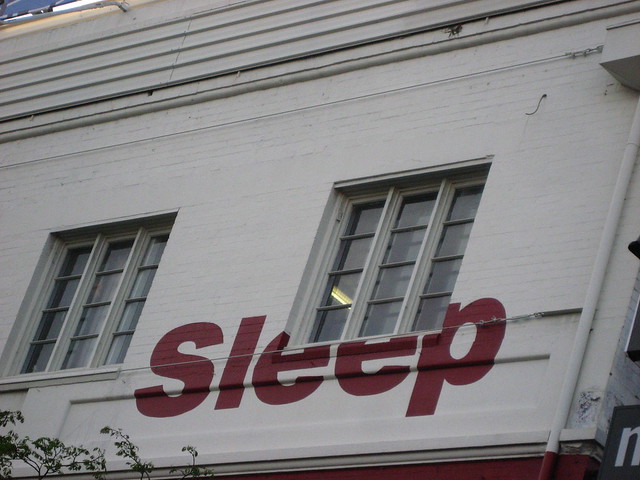 |
| The Birdee Numnum hostel in Brisbane, Australia, 2007. |
Philips’ global sleep study has found that insomnia (26%) and snoring (21%) are universal issues that impact sleep for more than one in five adults*. The study also reveals that people tend to feel guiltier about not exercising or about eating unhealthily than they do about not getting enough rest.
Research also shows that many of us fall short on the quality of sleep, too. A recent local study found that as many as one in three Singaporeans suffer from a medical condition called obstructive sleep apnea (OSA)**, where a person stops breathing many times while they sleep, interrupting sleep quality. If left untreated, sleep apnea can contribute to more serious health conditions, and yet most Singaporeans who suffer from it are not even aware if they have it. According to Philips, snoring is a common side-effect for OSA.
A Philips sleep expert says, “Obstructive sleep apnea is a common, yet often underdiagnosed, sleep disorder. It occurs when a person’s upper airway becomes blocked repeatedly during sleep, reducing or completely stopping airflow. If left untreated, sleep apnea can contribute to serious medical conditions including heart attacks, glaucoma, diabetes, cancer, and cognitive and behavioural disorders.
“Whilst many block it out with ear plugs, loud and un-rhythmic snoring can indicate blockage and could be a sign of something much more serious. We would highly recommend anyone in this situation to check in with their GP (doctor).”
“Snoring is not just a ‘guy thing’, and nor is sleep apnea,” adds Philips’ spokesperson. “Whilst it’s more common in men than women, ladies can still develop it, particularly as they get older.”
Besides consulting a doctor or sleep specialist, it is also possible to diagnose the condition with home-test kits.
To celebrate World Sleep Day on 16 March, Philips shares some tips for better quality sleep:
Digital detox
Using electronics just before you sleep can keep you awake because bright light can throw the body’s biological clock off. Put away your phone and screens at least half an hour before bedtime, and preferably sleep without them by your side.
Get into a routine
Get into a routine
Philips’ global sleep survey found that less than half of adults maintain a regular bedtime schedule and less than one in three feel guilty about not maintaining good sleeping habits. And yet a consistent, predictable bedtime routine can help people fall asleep more quickly and improve sleep quality. Try to make sleep just as important as sticking to an exercise or eating regime, and keep close to the same bedtime every night.
A soothing atmosphere
A cool, quiet and dark room is best for quality sleep. Playing soothing music and turning down the room temperature can help calm the senses and create a peaceful sleeping environment. Avoid using the bedroom for daytime activities like work.
Rule out any sleep issues
Visit a GP or sleep specialist to discuss the possibility of a home-test for sleep problems.
A soothing atmosphere
A cool, quiet and dark room is best for quality sleep. Playing soothing music and turning down the room temperature can help calm the senses and create a peaceful sleeping environment. Avoid using the bedroom for daytime activities like work.
Rule out any sleep issues
Visit a GP or sleep specialist to discuss the possibility of a home-test for sleep problems.
 |
| Source: Philips. World Sleep Day 2018 infographic. |
Explore:
*Philips global sleep survey, Better Sleep, Better Health. A Global Look at Why We’re Still Falling Short on Sleep
**JurongHealth, One in three Singaporeans have moderate to severe sleep apnea and one in 10 Singaporeans suffer from severe sleep apnea: Study, 17 March 2016.